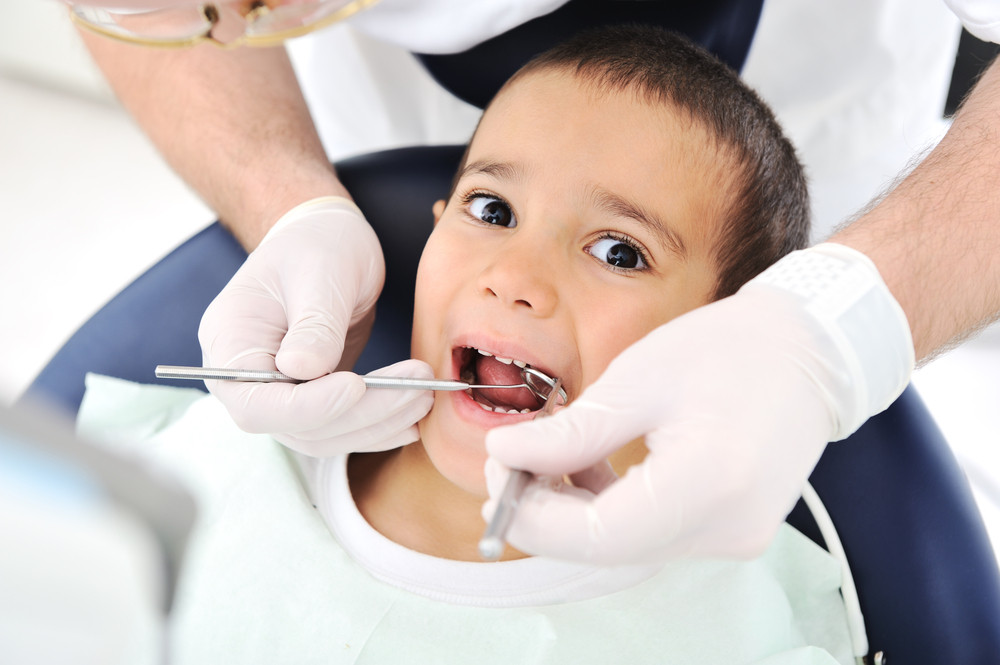
Highlights:
- Daily brushing and flossing are the foundation of cavity prevention in children.
- Balanced diets and limited sugary snacks significantly reduce tooth decay risk.
- Early and consistent visits to a pediatric dentist help detect and treat issues before they worsen.
- Fluoride treatments and dental sealants provide essential protection for developing teeth.
- Parents play a vital role in teaching and modeling proper oral hygiene habits.

A healthy smile begins in childhood, and preventing cavities early sets the stage for a lifetime of good oral habits. Cavities, also known as dental caries, are one of the most common chronic diseases among children worldwide. According to the World Health Organization, untreated dental caries affect more than 530 million children globally. That’s why understanding how to prevent cavities and promote strong, healthy teeth is essential for every parent.
Visiting a pediatric dentist regularly is one of the best steps you can take. Pediatric dentists specialize in children’s oral health and can help you create routines that protect against cavities, encourage healthy development, and make dental care fun and comfortable for your child.
Why Cavity Prevention Starts Early
Early cavity prevention isn’t just about protecting baby teeth—it’s about ensuring proper oral development. Primary teeth help children speak, chew, and guide permanent teeth into the right position. When decay affects these teeth, it can lead to pain, infection, and even impact future dental alignment.
A pediatric dentist focuses on preventive care from infancy through adolescence. This includes teaching parents the right brushing methods, offering dietary guidance, and providing treatments such as fluoride varnishes and sealants. By starting dental visits early—ideally by your child’s first birthday—you can prevent cavities before they begin and help your child develop a positive attitude toward oral care.
Brushing and Flossing: Building Strong Foundations
Daily brushing and flossing are essential to keeping children’s teeth healthy. Parents should begin cleaning their child’s gums even before the first tooth appears, using a soft, damp cloth. Once teeth erupt, switch to a small, soft-bristled toothbrush and a pea-sized amount of fluoride toothpaste for children over age three.
Young children often lack the coordination to brush effectively, so parental supervision is key. Brushing together can make the routine fun while ensuring thorough cleaning. Encourage your child to brush for two minutes, twice a day, and teach them to spit out excess toothpaste rather than swallow it.
Flossing should begin as soon as two teeth touch. Plaque and food particles can easily hide between teeth, leading to decay. A pediatric dentist can demonstrate the best flossing techniques and recommend child-friendly tools like floss picks or pre-threaded flossers.
The Role of Fluoride in Cavity Prevention
Fluoride is one of the most effective minerals for strengthening enamel and preventing decay. It works by making teeth more resistant to acid attacks from bacteria in plaque. Children who receive regular fluoride exposure through toothpaste, mouth rinses, or professional treatments have significantly lower rates of cavities.
A pediatric dentist can apply fluoride varnishes during checkups, offering added protection, especially for children at higher risk of decay. Parents should also check local water sources—many communities add fluoride to drinking water, providing additional benefits with every sip.
Remember that while fluoride is beneficial, too much can cause fluorosis, which appears as faint white spots on teeth. Following your dentist’s recommendations helps maintain the right balance for optimal protection.
Healthy Diets That Support Strong Teeth
Diet plays a major role in dental health. Frequent snacking on sugary foods and drinks fuels the bacteria that cause cavities. Instead, aim for balanced meals and limit snacks to just a few times a day. Offer fresh fruits, vegetables, cheese, and water rather than juice or soda.
Sticky snacks like gummies or dried fruit can cling to teeth, promoting decay. Encourage your child to rinse their mouth with water after eating and brush if possible. Whole foods rich in calcium and phosphorus—like dairy products, leafy greens, and fish—help strengthen enamel naturally.
A pediatric dentist can provide nutrition advice tailored to your child’s needs and help you identify hidden sources of sugar that may contribute to cavities.
Dental Sealants: Invisible Shields Against Cavities
Dental sealants are thin, protective coatings applied to the chewing surfaces of molars, where cavities often form. These sealants act as barriers, keeping out food particles and bacteria that cause decay.
Sealants are especially beneficial for children once their permanent molars erupt, typically around ages six and twelve. A pediatric dentist can determine if sealants are appropriate for your child and apply them during a routine visit. With proper care, sealants can last several years and provide long-term protection.
Regular Dental Checkups: Early Detection Matters
Routine dental visits allow your child’s pediatric dentist to identify problems early—before they become painful or expensive to treat. These appointments also give the dentist a chance to clean hard-to-reach areas and check for signs of decay, gum inflammation, or bite issues.
For most children, visiting the dentist every six months is ideal. Some may need more frequent checkups depending on their risk factors, such as diet, oral hygiene habits, or a history of cavities. Regular visits also help children feel more comfortable and confident in the dental office environment, reducing anxiety over time.

Teaching Children Good Oral Habits
Healthy oral care habits are learned behaviors. Children often mirror what they see at home, so modeling consistent brushing and flossing is essential. Create routines that make dental care engaging—such as using colorful toothbrushes, playing music during brushing, or offering small rewards for consistent habits.
A pediatric dentist can reinforce these lessons during visits, helping children understand why oral hygiene matters and how to take responsibility for their own care as they grow older.
Parents can also use educational books and videos designed for kids to make dental health fun and approachable. Positive reinforcement goes a long way in developing lifelong habits.
Managing Fear and Anxiety at the Dentist
Dental anxiety is common among children, but it can be minimized through a gentle, patient-centered approach. Pediatric dental offices are designed with children in mind, featuring bright décor, friendly staff, and smaller tools that make the experience less intimidating.
If your child feels nervous about their appointment, try reading books about visiting the dentist or role-playing at home to show what to expect. A pediatric dentist is trained to use child-friendly language, explain procedures clearly, and provide a calm environment that builds trust and comfort.
Over time, positive dental experiences can eliminate fear and encourage children to look forward to their visits.
The Link Between Oral Health and Overall Health
Cavities are more than just a dental issue—they can affect a child’s overall health. Untreated decay can lead to pain, infection, difficulty eating, and even problems with speech and learning. Oral diseases can impact quality of life, causing missed school days and reduced productivity in children.
Maintaining strong oral hygiene and regular visits to a pediatric dentist support not just a healthy mouth, but also overall well-being. Healthy teeth help children eat properly, speak clearly, and smile confidently—key aspects of their growth and self-esteem.
Common Questions Parents Ask Pediatric Dentists
How often should my child visit the dentist?
Most children should visit every six months, though your pediatric dentist may recommend more frequent visits if your child is prone to cavities.
What kind of toothbrush is best?
A soft-bristled brush with a small head is ideal for children. Electric toothbrushes with built-in timers can also help make brushing more effective and fun.
When should my child start flossing?
Flossing should begin as soon as two teeth touch. A pediatric dentist can show you the best technique and recommend tools suited to your child’s age.
Are cavities in baby teeth really a big deal?
Yes. Baby teeth play an important role in speech, nutrition, and guiding adult teeth. Cavities can cause pain and affect permanent tooth development if left untreated.
What should I do if my child has a toothache?
Schedule a dental visit right away. Tooth pain can indicate decay or infection that requires prompt attention from a pediatric dentist.
Final Thoughts
Preventing cavities in children is one of the most rewarding investments parents can make in their child’s health. Through consistent brushing, smart nutrition, fluoride use, sealants, and regular dental visits, you can protect your child’s teeth from decay and help them develop lifelong healthy habits.
By partnering with a trusted pediatric dentist, families can create personalized plans that promote strong, beautiful smiles—because every child deserves the confidence that comes with excellent oral health.